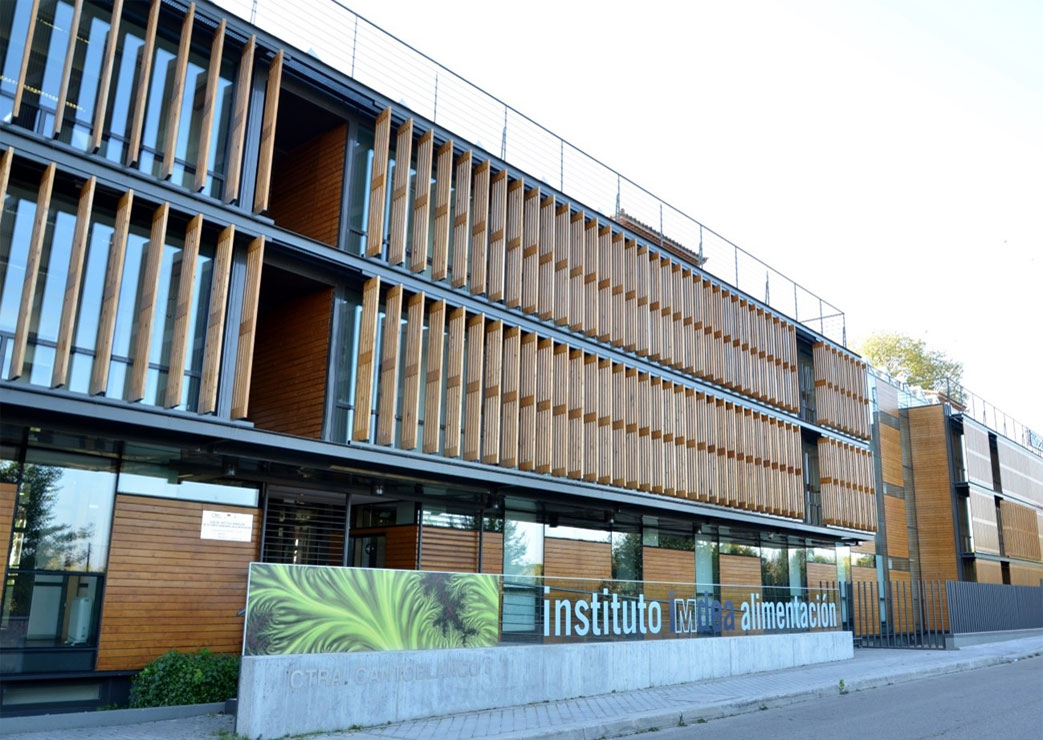Services and infrastructure
Scientific-technological

Imdea Food
IMDEA Food Institute, one of the seven Institutes for Advanced Studies in Madrid (IMDEA), is a public research center founded in 2007 by the Community of Madrid. The aim of the Institute is to generate science of excellence in the field of food on which to support solutions to social problems and contribute to a knowledge-based economic model capable of generating high added value.

IMDEA Food focuses its scientific project on Precision Nutrition. The development of products and therapies for various chronic diseases is based on new scientific knowledge about the molecular mechanisms that give rise to different physiological processes. The identification of therapeutic targets that can be modulated by nutrients is key for foods to achieve the therapeutic character attributed to them in the current scientific context. IMDEA Food draws its lines of research through the strategies and tools of nutritional genomics, in fields such as cancer, aging, obesity and cardiometabolic diseases.

The Institute’s activities are aimed at studying the molecular mechanisms of the human body, the physiological effects of chronic diseases and how these relate to the nutrients we consume. Nutritional strategies must be designed and validated with precision nutrition in mind, so they must focus on individuals and their particular characteristics, i.e., their genetic profile and their particular physiological state.
Where is our headquarters located?
IMDEA Food headquarters are located in the former Main Building of the Cantoblanco Hospital since the beginning of 2014. The building, ceded to the Institute by the Community of Madrid, is an excellent space for the development of scientific research. It is located next to the Cantoblanco Campus of the Autonomous University of Madrid -with which the Institute maintains strong cooperation ties-, within the grounds of the Cantoblanco University Hospital.
The building occupies an area of 4,595 m2 and is divided into two symmetrical main sections of five floors each, which can house up to 100 researchers. It is equipped with P2 molecular and cell biology, genomics and instrumental analysis laboratories, as well as facilities for human clinical trials.
CBMSO
Founded in 1975 as a joint center between the Consejo Superior de Investigaciones Científicas (CSIC) and the Universidad Autónoma de Madrid (UAM), under the initiative and tutelage of Nobel laureate Severo Ochoa. He brought together several of the most active groups in the fields of biochemistry and molecular biology that existed in Spain at the time to form the CBMSO. The different lines of research currently cover cutting-edge areas in disciplines such as cell biology, developmental biology, virology, molecular microbiology, neurobiology, cell signaling and immunology.
From the research point of view, the most essential characteristic of the CBMSO is that its lines of research cover multiple basic and also applied aspects within molecular, cellular and biomedical biology. The study of these fundamental mechanisms has a great social impact: on the one hand, their alterations lead to pathologies that can directly affect the quality of life of citizens; on the other hand, because their study can lead to important practical applications in the field of biomedicine and biotechnology. The pathologies whose mechanisms are being studied at the CBMSO include neurodegenerative diseases such as Alzheimer’s disease, cancer, metabolic diseases, viral infections, or alterations in the cardiovascular and immune systems.
Since 2007 the CBMSO is located in its own building, located in C/ Nicolás Cabrera, nº1, in the Cantoblanco campus of the UAM. At present, the CBMSO is formed by more than 70 research groups grouped in 5 departments: Cell Biology and Immunology, Virology and Microbiology, Development and Regeneration, Molecular Neuropathology, Genome Dynamics and Function. It also has its own scientific, technical and administrative services, as well as a department of scientific culture. Details about its location, staff, services, etc.




